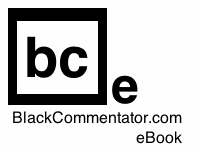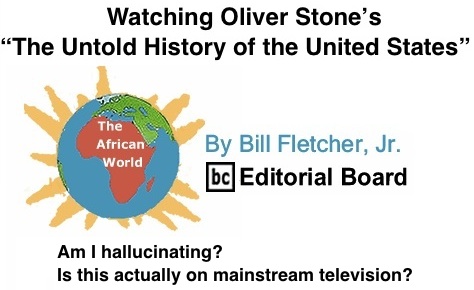




Showtime is re-running Oliver Stone’s ten part documentary,
The Untold History of the
Oliver Stone and American University Professor, Peter
Kuznick, put together a magnificent re-examination of
Not only does Stone raise significant questions, thereby
challenging both the distortions and misrepresentations that have been passed
down to us as “history”, but he encourages the viewer to ask whether events
might have played out differently, and under what conditions. An early example
of this approach can be found in his discussion of the evolution of Henry
Wallace, FDR’s Vice President, who was forced off the ticket in 1944, replaced
by the not-very-popular Harry S. Truman. Wallace had a very different view of
foreign policy, including an anti-colonial orientation and a desire for peace
with the
Stone’s documentary is, in many respects, like a film
version of Howard Zinn’s A People's History of the United States: 1492 to Present
The Untold History of the United States has an accompanying book. Seven hundred fifty pages in length, I thought that it might be a quick read, particularly after watching the documentary. It is not a quick read; it is a fascinating read. It explores, in depth, the issues that are raised in the series and provides documentation for the assertions that are advanced.
A series such as this cannot unfold without challenges
from those who still cling to the “American Century” and Cold War mythologies
of days gone by. And, indeed, such challenges have appeared. Yet the
scholarship involved in this documentary stands in the face of such skeptics.
As with all history, events are a matter of
interpretation. Yet, without sufficient facts, one cannot credibly interpret
the reasons for or implications of events. Stone and Kuznick have, therefore,
done a great service by encouraging the viewer (and reader) to question myths,
assertions and traditional arguments. Instead, they introduce the viewer and
reader to a combination of information - new to many people - and questions, in
order to provoke the interest and curiosity of the reader/viewer. One does not
have to agree with each and every bit of analysis offered by Stone and Kuznick
to appreciate the importance of the appearance of The Untold History of the
Take a peek.
BlackCommentator.com Editorial Board member
and Columnist, Bill Fletcher, Jr., is a
Senior Scholar with the Institute for Policy Studies, the immediate past president of TransAfricaForum, and the author of “They’re
Bankrupting Us” - And Twenty Other Myths about Unions. He is also the co-author of Solidarity
Divided: The Crisis in Organized Labor and a New Path toward Social Justice, which examines the crisis of organized labor in the








